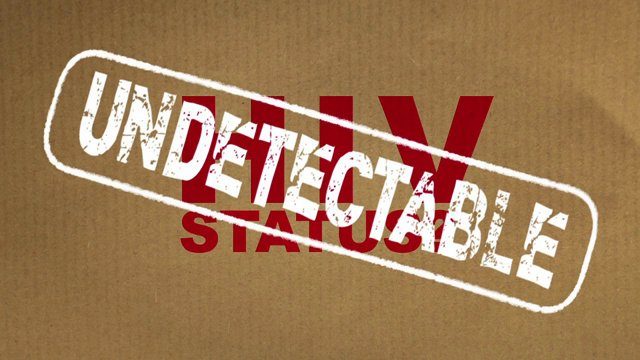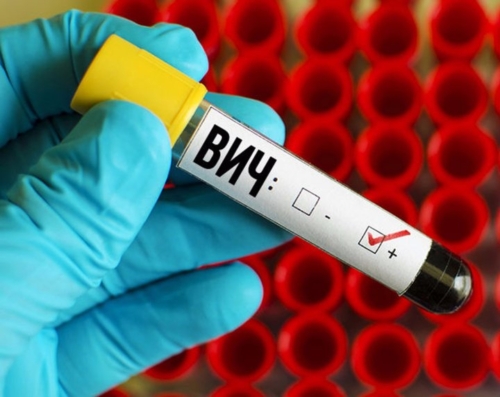
HIV patient acquitted of sex assault because of rare condition that suppresses virus
Five years later, an appeals court has overturned his initial conviction, citing a rare condition that makes it all but impossible he could pass HIV to anyone else.
For a Masters student and social activist from Tanzania, it was a heavy blow. X was convicted of aggravated sexual assault, sentenced to 13 months in jail and placed on Canada’s sex offender registry for life.
A Toronto judge found he had unprotected sex and failed to tell his partner he was HIV positive, behaviour that Canadian law says equals obtaining consent by fraud.
But five years later, the Ontario Court of Appeal has overturned that conviction and entered an acquittal in a ground-breaking new decision, citing a rare condition that naturally suppresses the virus in X’s body and makes it all but impossible he could pass HIV to anyone else.
After admitting fresh evidence from an HIV expert, the appeal court ruled that as a so-called “elite controller,” X’s viral load is consistently so low that the chances of spreading the virus to a sex partner is “negligible.”
Crown attorneys had urged the court to order a new trial if they threw out the conviction, but the judges said an acquittal was needed because “no reasonable trier of fact” could find him guilty if prosecuted again.
In some ways it’s too late for X, who has already served out the full two-thirds of his jail sentence required to obtain parole — years before his appeal was decided.
Prosecutors in such cases have generally been slow to keep up with the science around the issue, said Wayne Cunningham, his lawyer.
“You find people prosecuted despite compelling scientific evidence that they’re not infectious,” he said Wednesday. “For anyone going through this, who are generally people with no other criminal record, it’s a very traumatic and trying experience, to be criminalized for a medical condition.”
Charging sex partners who don’t disclose their HIV-positive status has long been controversial, with some HIV scientists and advocates arguing that it discourages people from being tested. But in a 2012 judgement, the Supreme Court of Canada seemed to make the law even tougher, finding that someone who fails to reveal they have HIV is in the clear only if their viral load is small and a condom is used.
The X decision appears to set new precedent, not requiring protected sex. But Cunningham said another elite controller would probably also need to call expert evidence if charged. Meanwhile, federal and provincial prosecution guidelines now discourage such charges when the virus is suppressed by anti-retroviral drug treatment (ART), said the lawyer.
Dr. Rupert Kaul, a University of Toronto HIV expert, said he “completely” agrees with the expert witness who told the appeal court someone like X was not a risk for transmission. He cited the European PARTNER study that looked at “tens of thousands” of sexual episodes between gay and heterosexual couples where one was HIV-positive but on ART — which similarly suppresses viral load — and the other uninfected. Not one transmission occurred.
“This is a really important precedent,” said the UofT immunology professor about the ruling. “It’s important, even though he’s served his term, that it’s proceeded through the court.”
The X case underscores a little-known group of HIV patients who remain almost virus-free even without anti-retroviral treatment. It’s not necessarily a permanent state, but elite controllers can go decades with suppressed virus levels, said Kaul.
It appears to be the result of particular cell tissue types that make it difficult for HIV to take hold in the body, he said. In fact, researchers seeking a functional cure for HIV are looking to controllers for clues, said Kaul.
X was convicted in 2017 of having sex several times with a woman in 2013 after meeting her on an Eastern Ontario cycling trip. The woman — whose name cannot be published under the standard ban imposed in such cases — testified that she learned of his HIV status from a spurned lover of Xs, according to a Toronto Sun report on the case. She was tested herself three times, the result negative each instance.
The court heard in 2017 that X, then a student at York University, is an investigative journalist and social activist who has exposed resource exploitation by mining companies in Tanzania and other countries, the Sun reported.
The judge then said he might have imposed as much as a two-year sentence if not for mitigating factors, including several glowing letters of commendation filed in court.
Man jailed for not revealing he was HIV positive
An HIV-positive Tanzanian student who had weeks of unprotected sex with a Vancouver woman was sentenced to 13 months in jail or aggravated sexual assault.
Justice Michael Brown said he would have given EX a longer sentence — as long as two years in prison — if there were not mitigating factors.
X, 43, had no previous convictions, Brown noted in a judgment last week.
X is an investigative journalist and social activist who has exposed resource exploitation by mining companies in his native Tanzania and other countries, court heard.
X, who has been on bail for three years without incident, had several glowing, good character letters filed in court.
Brown deducted two months from the sentence for time already served. X was placed on the sex offenders’ registry for life.
X didn’t disclose his HIV status to the 25-year-old woman before they had unprotected sex 11 to 15 times between July 31 and Aug. 31, 2013 throughout Ontario, said Brown.
The victim, whose identity is protected by a publication ban, wouldn’t have consented if X revealed the truth, added the judge.
“He specifically said he did not have HIV. She wanted to trust his word,” Brown said.
The woman testified she met X while both were on a two-week cycling trip in eastern Ontario. They became sexual partners after a walk in the woods.
After returning to university in Vancouver, she received a shocking message from X’s scorned lover in Toronto who asserted he was HIV positive.
The woman confronted X when he visited her in Vancouver. The panicked woman underwent three HIV tests, all negative.
An expert witness testified in September that X’s “extremely low serum HIV load was highly likely to be protective against HIV transmission by vaginal intercourse.”
HIV-positive man guilty of assault after unprotected sex
TORONTO – An HIV-positive Tanzanian student who had weeks of unprotected sex with a Vancouver woman was found guilty Tuesday of aggravated sexual assault.
Justice Michael Brown said X didn’t disclose his HIV status to the 25-year-old woman before they had unprotected sex 11 to 15 times between July 31 and Aug. 31, 2013 in the Belleville area and throughout Ontario.
Brown ruled that the victim, whose identity is protected by a publication ban, wouldn’t have consented if X had divulged the truth.
Her consent was negated due to his lying to her that he had no STDs prior to their sexual relationship, the judge said.
“He specifically said he did not have HIV. She wanted to trust his word,” Brown said.
The woman testified she met X while both were on a two-week cycling trip in eastern Ontario. They became sex partners after a walk in the woods and continued to have unprotected sex after the trip.
After returning to university in Vancouver, she received a shocking message from X’s scorned lover in Toronto who asserted he was HIV positive.
The woman confronted X when he visited her in Vancouver. He told her not to worry, but the panicked woman underwent three HIV tests in the next few months to see if she was infected.
Fortunately, the tests were negative.
An expert witness testified that X’s “extremely low serum HIV load was highly likely to be protective against HIV transmission by vaginal intercourse.”
Brown said that while X’s risk of transmission was low, there remained “a realistic possibility, not a speculative one,” of transmitting the virus because no condom was used.
X, now 42, remains free on bail. A date for sentencing will be set on Dec. 6.
Tanzanian student 'low risk' to infect woman with HIV: Doctor
Court hears Tanzanian man, 42, posed “an incredibly low risk” to female complainant during HIV non-disclosure trial
An HIV-positive Tanzanian student who allegedly had weeks of unprotected sex with a Vancouver woman posed “an incredibly low risk” to infect her, court heard Thursday.
X is accused of aggravated sexual assault and endangering the life of a 25-year-old woman by having sex with her while not disclosing his condition between July 31, 2013 and Aug. 31, 2013 in the Belleville area and throughout Ontario.
X, 42, has pleaded not guilty at the judge-alone trial before Justice Michael F. Brown.
An expert witness testified Thursday that X’s “extremely low serum HIV load was highly likely to be protective against HIV transmission by vaginal intercourse.
“I feel the risk of HIV transmission by vaginal intercourse is incredibly low” due to X’s low serum viral load, wrote Dr. Philippe El Helou, an infectious disease specialist from McMaster University, in a report filed in court.
“His risk of transmitting HIV infections through vaginal intercourse is incredibly low,” wrote El Helou.
Last week the woman testified she met X while both were on a two-week cycling trip in eastern Ontario in the summer of 2013. On the trip, they became sex partners after a walk in the woods. The couple continued to have unprotected sex after the trip.
She testified she had no inkling he was infected at the time.
She returned to university in Vancouver where she received a shocking message from Rubara’s scorned lover in Toronto. The lover asserted X was HIV-positive.
The alleged victim confronted X when he visited her in Vancouver.
He told her not to worry about it, but the panicked woman underwent three HIV tests in the next few months to see if she was infected.
Fortunately, the tests for the alleged victim, whose identity is covered by a publication ban, were HIV-negative.
Toronto Police charged X in Nov. 2013 and he remains free on bail.
As he left the University Ave. courthouse on Thursday, X struck Sun photographer Jack Boland over the head with his opened umbrella to stop him from taking pictures.
When Boland told X he could be charged with assault, X replied, “I don’t care. I’ll do what I want.”
Boland was unharmed.
Defence lawyer David Connally and Crown attorney Susan Magotiaux will make their closing arguments on Sept. 28.




